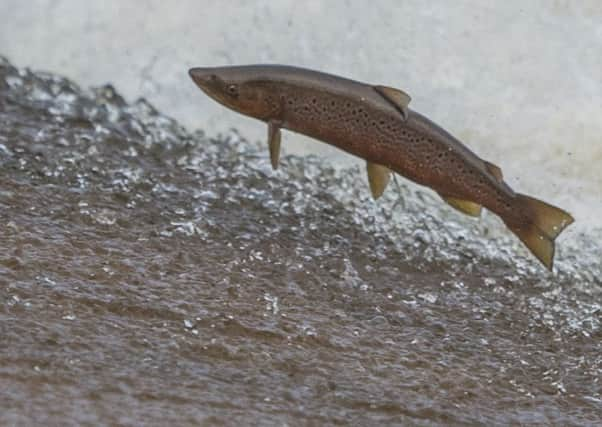New '˜kill licence' unveiled to protect wild Scottish salmon


Measures include a three-year ban on killing fish outwith estuary limits and strict controls on the number that can be taken from inland waters, with targets to be set annually based on the health of stocks in particular rivers.
All fisheries districts will also require a conservation plan, regardless of the health of local populations.
Advertisement
Hide AdAdvertisement
Hide AdThe new regulations – previouslyknown as the “kill licence” – have been welcomed by fisheries managers, who say they provide clarity while also offering “flexibility” for improvement.
There has been a steady decline in the numbers of Atlantic salmon in Scottish rivers in recent years. Total catch was estimated at 500,000 in 1975, but this had crashed to about 100,000 by 2000.
The fish face threats from predators, poor water quality, disease and parasites, barriers to migration and the effects of climate change.
The new rules, which come into force on 1 April, are aimed at improving the conservation status of wild salmon, a protected species, by ensuring fishing is sustainable.
Other recent changes to salmon laws include delaying the start of the annual net fishing season.
It shows ministers are prepared to make “necessary but difficult decisions”, according to Alister Jack, chair of the River Annan Trust and District Salmon Fishery Board.
He said: “This is the right thing to do. What is now important is that we come together as a sector, both anglers and netsmen alike, to respond to the challenges that the new measures bring and use the opportunity afforded by the forthcoming consultation on a draft Wild Fisheries Bill to ensure a prosperous and brighter future for our fisheries.”
Scottish environment minister Dr Aileen McLeod said: “Our salmon is a valuable and important asset which we must protect and balance conserving stocks with the interests of those who fish for salmon.”
Advertisement
Hide AdAdvertisement
Hide AdAlasdair Laing, Association of Salmon Fishery Boards chairman, said existing voluntary conservation efforts would need only small tweaks to comply with the new laws.
He added: “The conservation status principle will help identify areas where specific management challenges existed while offering the flexibility for improvements to be recognised.”